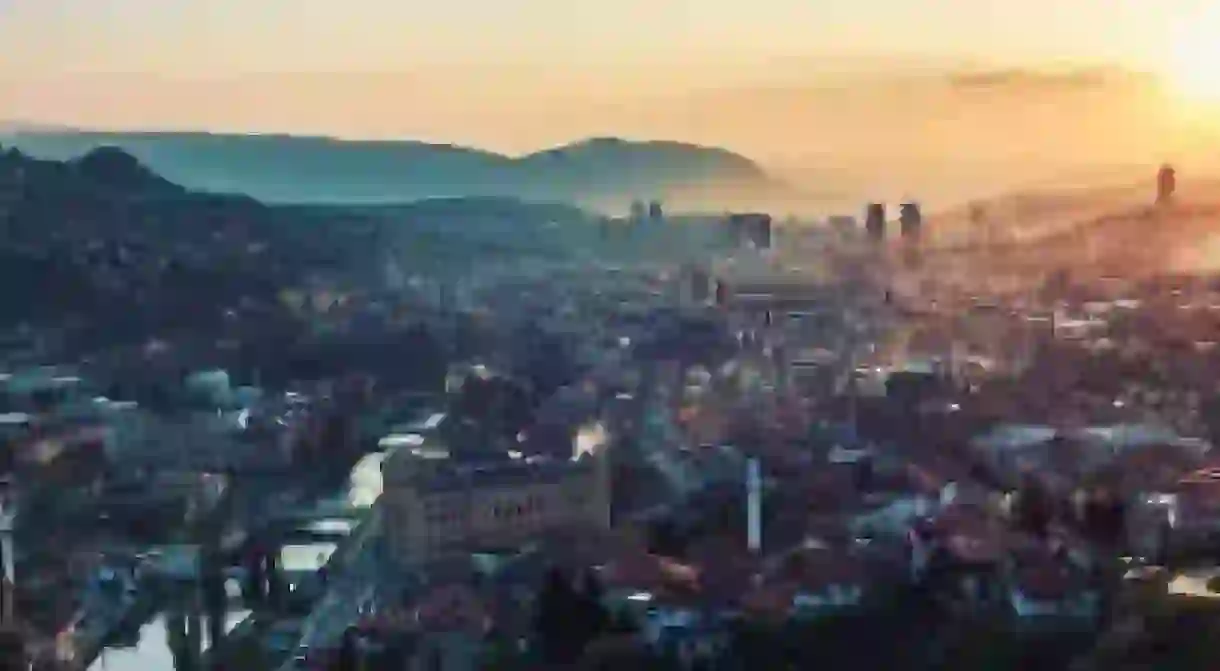The 5 Best Books About Bosnia & Herzegovina

Bosnia is only a small country, but one that has seen its fair share of historic events and national troubles. The country is most well known for being the site of the assassination of Archduke Franz Ferdinand, the immediate cause of the First World War, as well as its bloody civil war in the early 1990s following the break-up of Yugoslavia. Bosnia is a complex country, with a wealth of fiction and non-fiction aiming to shed light onto the causes and consequences of the conflict. Here’s our guide to the best books to help understand the complications, history, beauty and culture of this Balkan state.

The Fall of Yugoslavia by Misha Glenny
One of the best third-party accounts of the civil war in the 1990s is this book by Misha Glenny, a British journalist who reported on the civil war for the BBC and now writes for The Guardian. Given that the book covers the outbreak and ensuing conflict around the region, it is not exclusively about Bosnia, but the wider picture is necessary to fully understand why the conflict happened and why it was so bloody. Glenny writes with an unbiased point of view, with a style that is clear and simple but yet covers all the important details. A great introduction as to why Bosnia exists in the way it does today.

Zlata’s Diary by Zlata Filipović
This diary by Zlata Filipović is the Bosnian civil war version of Anne Frank’s diary. Filipović was born in 1980, and was a child when the civil war broke out and when she lived through the siege on her home city of Sarajevo. During the siege she kept this diary, which was then published after she and her family were able to flee to Paris in 1993. The diary is an excellent introduction to the conflict as a first person perspective, since it is written from a uncomplicated child’s point of view, as well as being an authentic first-hand experience.

The Bridge on the Drina by Ivo Andrić
Ivo Andrić is Bosnia’s most celebrated author, who won the Nobel Prize for Literature in 1961. His personal story embraces Bosniak, Serb and Croat ethnicities – a mix that would be unheard of today. The Bridge on the Drina was written in 1945, when Bosnia was still part of Yugoslavia and under communist rule, which makes a refreshing change to the abundance of literature covering the civil war period. This famous fiction novel focuses on the town of Višegrad in eastern Bosnia, and its famous bridge- which acts as the story’s main character. The story covers the life of the bridge from its inception in the Ottoman occupation, right up until the outbreak of the First World War. The Bridge on the Drina is an enjoyable introduction to Bosnia’s long history, told from an unusual and quirky perspective.

The Cellist of Sarajevo by Steven Galloway
This semi-biographical work, set during the siege of Sarajevo, interweaves the stories of four different characters in the city at the time. Two of the characters are based on real people, one of them being the cellist, who after a bomb blast sat in the street playing his cello for 22 days, one day for each victim of the blast. Galloway successfully gives a human perspective to the war, focusing not on the facts but rather the personal stories of human beings, each in a different situation and with different concerns and fears. For an account of the war and experiences within Sarajevo but without a typical historical narrative, The Cellist of Sarajevo is an excellent read.

Goodbye Sarajevo: A True Story of Courage, Love and Survival by Atka Reid and Hana Schofield
Goodbye Sarajevo was written by two sisters, one of whom was evacuated to Croatia during the war and one who stayed in Sarajevo to look after other family members left behind. It is an autobiographical work detailing the events experienced by the two sisters throughout the war, with the chapters alternating between the two authors. Amongst the harrowing details of the war, the story also covers human aspects such as their mother’s work for a humanitarian agency, or Atka’s experiences finding love with a New Zealand journalist working in Sarajevo. The story shows that within war-torn cities there are always regular and good people simply battling to survive, which sheds a more hopeful perspective on the conflict.













